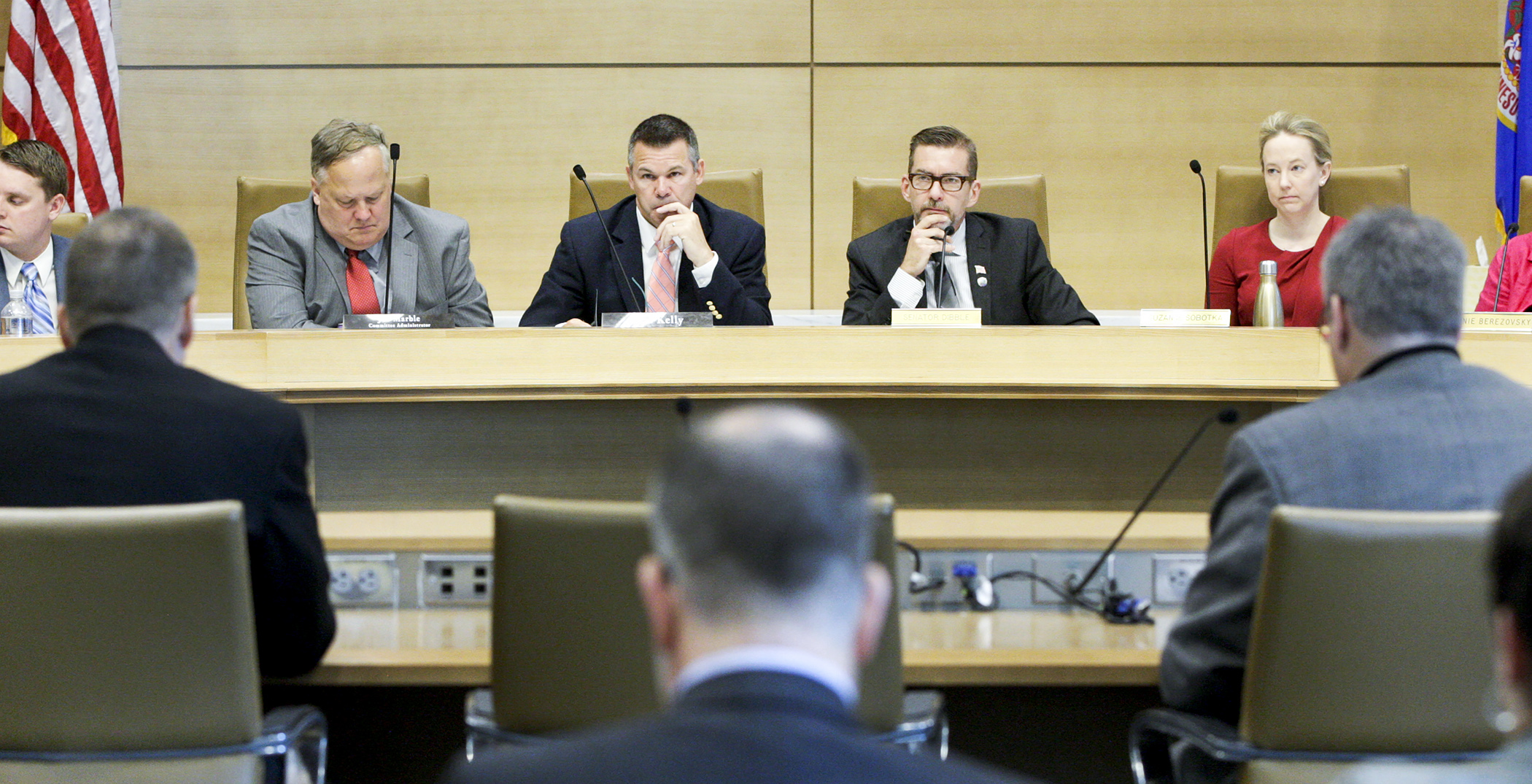House and Senate restart negotiations on major transportation deal

With time running out on the 2016 session, House and Senate lawmakers on Friday got back to tackling the task of finding agreement on a comprehensive transportation funding bill.
Just more than three weeks from the Legislature’s constitutionally-mandated May 23 adjournment date, the conference committee on HF4, the omnibus transportation policy and finance bill, met for the first time since March 16 to resume negotiations on reconciling the House and Senate’s widely divergent long-term plans for funding road, bridge and transit needs across the state.
Sen. Scott Dibble (DFL-Mpls), chair of the Senate Transportation and Public Safety Committee, said the committee would meet again next week as it tries to tie up one of the three major pieces of legislation still outstanding — along with major tax and bonding bills — while the clock ticks toward sine die.
“In the next week we’ll have to talk about money,” Dibble said, “and how we get to a successful conclusion” that provides a long-term funding plan.
The committee didn’t tackle those bigger questions Friday, focusing instead on an amendment Dibble offered to alter language in the bill dealing with a proposed public-private partnership pilot program that would have the Department of Transportation and the Metropolitan Council team up with private design and construction companies on major infrastructure projects on a test-run basis.
WATCH Full video of Friday's conference committee
It’s a point of relative agreement between the Republican-controlled House’s transportation plan and the DFL-controlled Senate’s, with Rep. Tim Kelly (R-Red Wing), chair of the House Transportation Policy and Finance Committee, saying the two sides are “on the same page” about exploring public-private partnerships to help get more infrastructure projects online more quickly.
How to fund billions in additional transportation spending that both sides have agreed is needed remains the sticking point.
The Republican-backed plan passed last spring in the House would raise an additional $7 billion for roads and bridges over the next decade in part by redirecting motor vehicle-related tax revenue away from the state’s General Fund, identifying efficiencies in the MnDOT budget, and utilizing some of the state’s projected $900 billion budget surplus.
In contrast, the DFL-backed Senate bill proposes to raise roughly $11 billion for roads and bridges, as well as transit — something neglected in the House bill — by instituting a new gas tax and expanding a metro area transit-dedicated sales tax from one-quarter to three-quarters of a cent.
Public-Private Partnership Pilot Program proposal
Dibble’s proposed amendment would move toward exploring how to partner with private firms to help finance, design, construct operate or maintain some transportation infrastructure projects like future bus rapid transit lines, bridges, interchanges or stretches of highway.
The proposed language would:
- allow up to three pilot projects between MnDOT and the Metropolitan Council;
- set a limit of $500 million per public-private project;
- allow only one “bundle project,” a collection of small projects completed as one;
- lay out specific policy goals for the pilot program;
- create an independent advisory group to analyze proposed projects;
- set qualifications for potential private partners; and
- set a June 30, 2019, sunset date for the program.
Related Articles
Search Session Daily
Advanced Search OptionsPriority Dailies
Ways and Means Committee OKs proposed $512 million supplemental budget on party-line vote
By Mike Cook Meeting more needs or fiscal irresponsibility is one way to sum up the differences among the two parties on a supplemental spending package a year after a $72 billion state budg...
Meeting more needs or fiscal irresponsibility is one way to sum up the differences among the two parties on a supplemental spending package a year after a $72 billion state budg...
Minnesota’s projected budget surplus balloons to $3.7 billion, but fiscal pressure still looms
By Rob Hubbard Just as Minnesota has experienced a warmer winter than usual, so has the state’s budget outlook warmed over the past few months.
On Thursday, Minnesota Management and Budget...
Just as Minnesota has experienced a warmer winter than usual, so has the state’s budget outlook warmed over the past few months.
On Thursday, Minnesota Management and Budget...